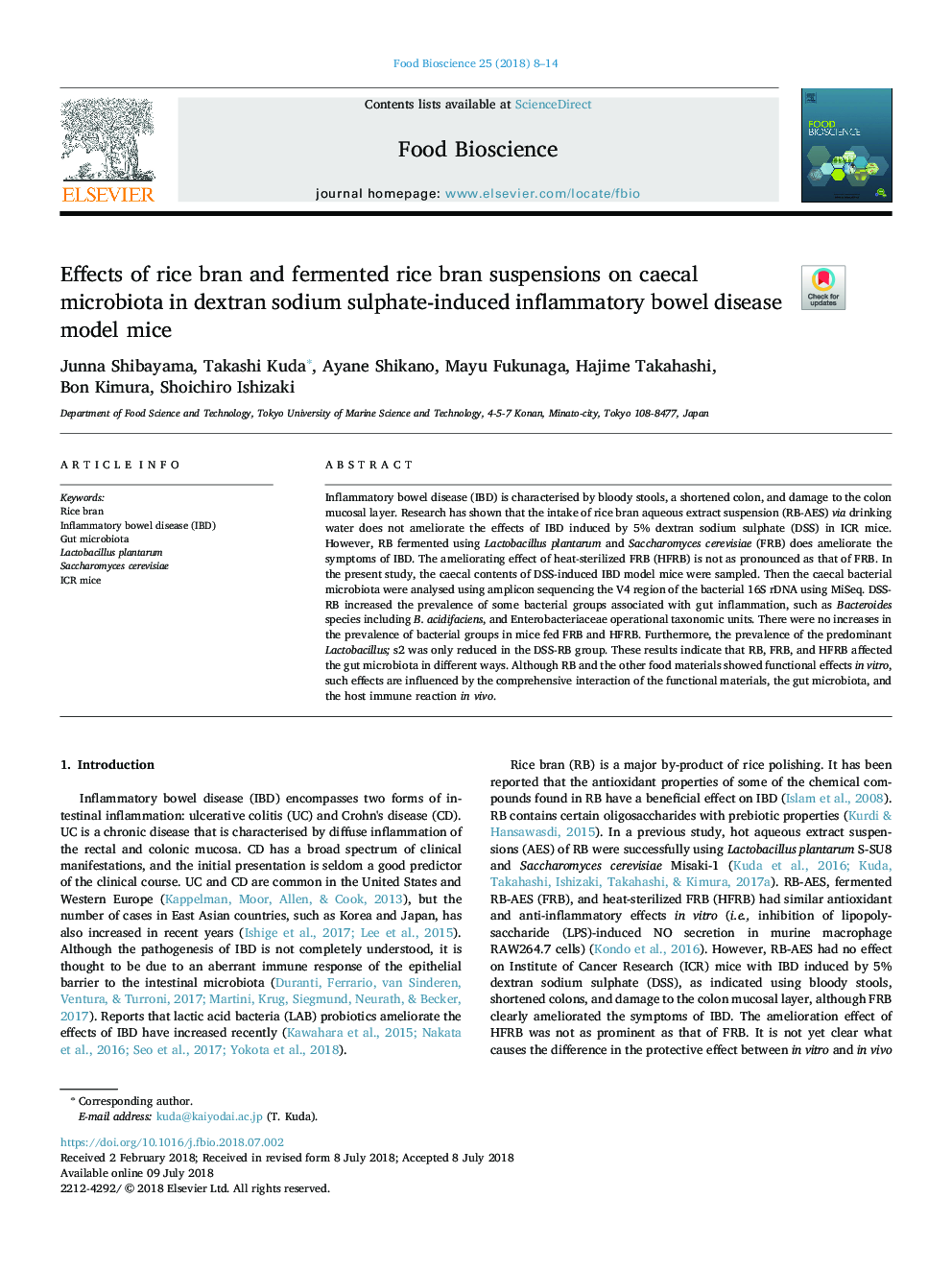| Article ID | Journal | Published Year | Pages | File Type |
|---|---|---|---|---|
| 6488722 | Food Bioscience | 2018 | 7 Pages |
Abstract
Inflammatory bowel disease (IBD) is characterised by bloody stools, a shortened colon, and damage to the colon mucosal layer. Research has shown that the intake of rice bran aqueous extract suspension (RB-AES) via drinking water does not ameliorate the effects of IBD induced by 5% dextran sodium sulphate (DSS) in ICR mice. However, RB fermented using Lactobacillus plantarum and Saccharomyces cerevisiae (FRB) does ameliorate the symptoms of IBD. The ameliorating effect of heat-sterilized FRB (HFRB) is not as pronounced as that of FRB. In the present study, the caecal contents of DSS-induced IBD model mice were sampled. Then the caecal bacterial microbiota were analysed using amplicon sequencing the V4 region of the bacterial 16S rDNA using MiSeq. DSS-RB increased the prevalence of some bacterial groups associated with gut inflammation, such as Bacteroides species including B. acidifaciens, and Enterobacteriaceae operational taxonomic units. There were no increases in the prevalence of bacterial groups in mice fed FRB and HFRB. Furthermore, the prevalence of the predominant Lactobacillus; s2 was only reduced in the DSS-RB group. These results indicate that RB, FRB, and HFRB affected the gut microbiota in different ways. Although RB and the other food materials showed functional effects in vitro, such effects are influenced by the comprehensive interaction of the functional materials, the gut microbiota, and the host immune reaction in vivo.
Keywords
Related Topics
Physical Sciences and Engineering
Chemical Engineering
Bioengineering
Authors
Junna Shibayama, Takashi Kuda, Ayane Shikano, Mayu Fukunaga, Hajime Takahashi, Bon Kimura, Shoichiro Ishizaki,
